
1 IN THE SKIES OVER AL AIN, IN THE United Arab Emirates, pilot Mark Newman waits for the signal. When it comes, he flicks a few silver switches on a panel by his leg, twists two black dials, then punches a red button labeled FIRE.
A slender canister mounted on the wing of his small propeller plane pops open, releasing a plume of fine white dust. That dust-actually ordinary table salt coated in a nanoscale layer of titanium oxide-will be carried aloft on updrafts of warm air, bearing it into the heart of the fluffy convective clouds that form in this part of the UAE, where the many-shaded sands of Abu Dhabi meet the mountains on the border with Oman. It will, in theory at least, attract water molecules, forming small droplets that will collide and coalesce with other droplets until they grow big enough for gravity to pull them out of the sky as rain.
This is cloud seeding. It's one of hundreds of missions that Newman and his fellow pilots will fly this year as part of the UAE's ambitious, decadelong attempt to increase rainfall in its desert lands.
Sitting next to him in the copilot's seat, I can see red earth stretching to the horizon. The only water in sight is the swimming pool of a luxury hotel, perched on the side of a mountain below a sheikh's palace, shimmering like a jewel.
More than 50 countries have dabbled in cloud seeding since the 1940s-to slake droughts, refill hydroelectric reservoirs, keep ski slopes snowy, or even use as a weapon of war. In recent years there's been a new surge of interest, partly due to scientific breakthroughs, but also because arid countries are facing down the early impacts of climate change. Like other technologies designed to treat the symptoms of a warming planet (say, pumping sulfur dioxide into the atmosphere to reflect sunlight into space), seeding was once controversial but now looks attractive, perhaps even imperative.
Denne historien er fra September - October 2024-utgaven av WIRED.
Start din 7-dagers gratis prøveperiode på Magzter GOLD for å få tilgang til tusenvis av utvalgte premiumhistorier og 9000+ magasiner og aviser.
Allerede abonnent ? Logg på
Denne historien er fra September - October 2024-utgaven av WIRED.
Start din 7-dagers gratis prøveperiode på Magzter GOLD for å få tilgang til tusenvis av utvalgte premiumhistorier og 9000+ magasiner og aviser.
Allerede abonnent? Logg på
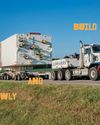
MOVE SLOWLY AND BUILD THINGS
EVERYTHING DEPENDS ON MICROCHIPS-WHICH MEANS TOO MUCH DEPENDS ON TAIWAN. TO REBUILD CHIP MANUFACTURING AT HOME, THE U.S. IS BETTING BIG ON AN AGING TECH GIANT. BUT AS MONEY AND COLOSSAL INFRASTRUCTURE FLOW INTO OHIO, DOES TOO MUCH DEPEND ON INTEL?
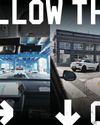
FOLLOW THAT CAR
CHASING A ROBOTAXI FOR HOURS AND HOURS IS WEIRD AND REVELATORY, AND BORING, AND JEALOUSY-INDUCING. BUT THE DRIVERLESS WORLD IS COMING FOR ALL OF US. SO GET IN AND BUCKLE UP.
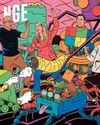
REVENGE OF THE SOFTIES
FOR YEARS, PEOPLE COUNTED MICROSOFT OUT. THEN SATYA NADELLA TOOK CONTROL. AS THE COMPANY TURNS 50, IT'S MORE RELEVANT-AND SCARIER-THAN EVER.

THE NEW COLD WARRIOR
CHINA IS RACING TO UNSEAT THE UNITED STATES AS THE WORLD'S TECHNOLOGICAL SUPERPOWER

CALIFORNIA DREAMIN'
KINDRED MOTORWORKS VW BUS - Despite being German, the VW T1 Microbus is as Californian as the Grateful Dead.

THE INSIDE SCOOP ON DESSERT TECH
A lab in Denmark works to make the perfect ice cream. Bring on the fava beans?
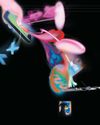
CONFESSIONS OF A HINGE POWER DATER
BY HIS OWN estimation, JB averages about three dates a week. \"It's gonna sound wild,\" he confesses, \"but I've probably been on close to 200 dates in the last year and a half.\"
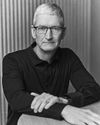
THE WATCHFUL INTELLIGENCE OF TIM COOK
APPLE INTELLIGENCE IS NOT A PLAY ON \"AI,\" THE CEO INSISTS. BUT IT IS HIS PLAY FOR RELEVANCE IN ALL AREAS, FROM EMAIL AUTO-COMPLETES TO APPS THAT SAVE LIVES.

COPYCATS (AND DOGS)
Nine years ago, a pair of freshly weaned British longhair kittens boarded a private plane in Virginia and flew to their new home in Europe.

STAR POWER
The spirit of Silicon Valley lives onat this nuclear fusion facility's insane, top-secret opening ceremony.